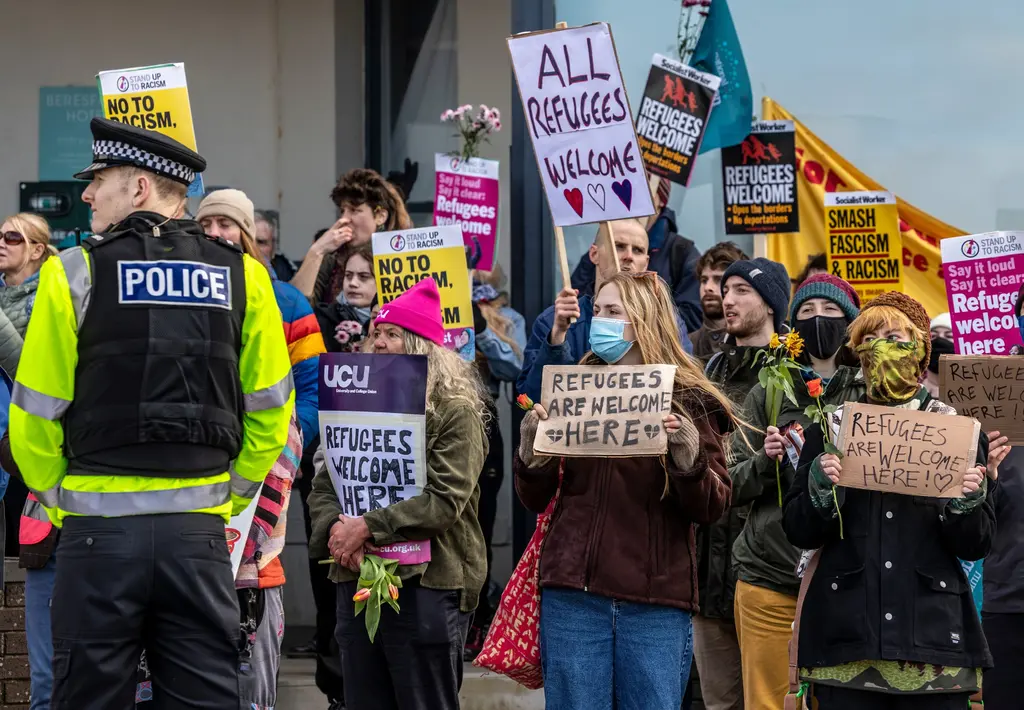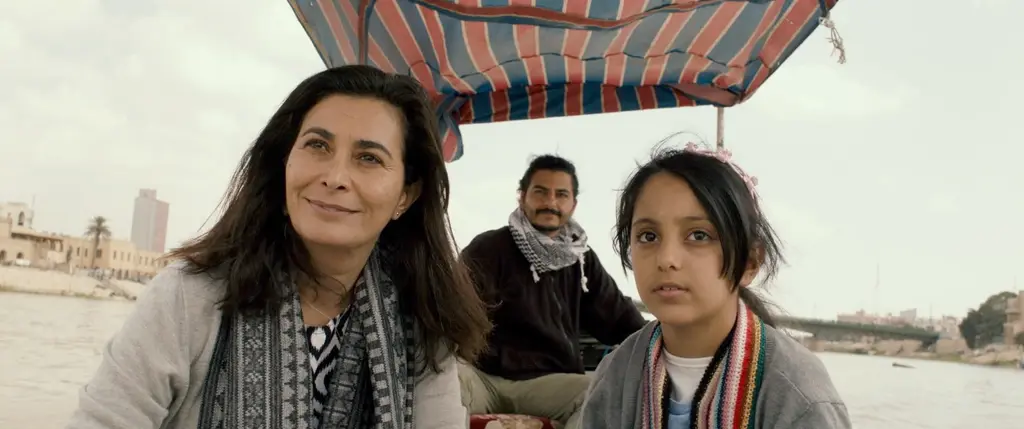Meghan Markle has exposed Britain’s racist, rotten core

Oprah sat mouth open in disbelief when Meghan Markle told her that members of the royal family were discussing with great concern what colour her child would be. You don’t have to be a republican to think this is disgusting; you simply have to be human. In the interview, which aired first in America and then in the UK last night, Meghan tearfully retold the story of being treated like a prisoner in the palace and the absence of care she received while battling suicidal thoughts.
What dominated the interview was the brutal treatment of Meghan in the media, which has been fuelled by the royal family. These two institutions worked together to incite racism with headlines that clearly exhibited, as Harry describes it, “colonial undertones”. We learnt about the lack of protection given to their family and “The Firm’s” eagerness to alter hundreds of years old convention so as not to pollute the royal bloodline with a drop of Blackness.
Meghan’s interview and the subsequent media backlash further exposed something that we already knew: racism is an undeniable force in this country, and the monarchy is no exception to this. If anything, the Monarchy works to uphold and enforce a racist status quo. The hope of Meghan’s modernising the monarchy and providing some form of representation has proven entirely hollow. She could do little to revolutionise the monarchy; they will always represent Britain’s violent and cruel history, and having a non-white face in the family doesn’t do anything to erase this.
There is a considerable disconnect between modern royals and Black British people. Though our parents and grandparents were charmed by Diana, this generation is far from impressed by the bland, rich family. With the exception of The Crown on Netflix, for me, the mistreatment of Meghan was the first time I’d taken an interest in the modern royal family. The truth is that I didn’t suddenly care about the monarchy, but I could identify with the mistreatment and disrespect she experienced within the institution and by the press.
The British media has routinely launched aggressive attacks on Black women for merely “breathing”, which Meghan spoke about explicitly in the interview. Alexandra Burke, for example, had been bullied mercilessly by tabloid journalists like Dan Wootton; she had articles written about using the angry Black woman trope just days after her mother had passed. British media used the same tactics on Misha B, an X Factor contestant bullied on the show; this eventually spilt into the press, and she even considered suicide. Time and time again, Black women are used as a punching bag for the white British public to experience a long-lost colonial powertrip.
After the Meghan and Harry interview, the Society of Editors put out a statement refuting any idea that the British press was bigoted. In the statement, Ian Murray, the executive director, said: “The UK media has a proud record of calling out racism and also being at the forefront of campaigns to support mental health awareness.” The Society of Editors’ statement, read in conjunction with the slew of negative press the ex-Royals have received around the interview, looks more and more like a coordinated attempt at gaslighting black Britons en masse. It’s about making people feel as if they’re losing their mind and can no longer trust their reality.
Though there are scarce instances of the UK press calling out racism and drawing attention to mental health campaigns, there are far more examples of their complicity in fuelling and executing vicious racist attacks and character assassinations. They have driven celebrities and reality stars – overwhelmingly women – to mental lows, and in some cases, to suicide.
Elsewhere in the statement, Murray states: “It is a pity the couple did not mention in their interview the huge support the UK media has shown to the charitable works carried out by the Duke and Duchess.” The implication that a few instances where there weren’t racist or colonial undertones to the reporting somehow meant none of it was is clearly absurd.
Black British people are frequently gaslit about their experiences of racism, and the media plays an undeniably huge part in this. We are continually asked to explain, defend or debate claims of racism against a backdrop of doubt. We are made to feel like we’re lying, even when we know we’re not. There is a routine denial of the existence of racism in this country, which is what has made the last few days so difficult. Like so many other women, Meghan has experienced the painful extent to which the confluence of British racism and sexism tears women of colour apart.
In Meghan, we have someone who is unmistakably part of the establishment, with wealth, platform and security of powerful friends. Defending her has felt uncomfortable for many, as she represents many of the structures and institutions that uphold and perpetuate a racist status quo. It is, however, possible and necessary to fight against the institutions whilst also highlighting and exposing the racism one of those within it has faced. They are, as Oprah said, ‘symbiotic’.
The interview with Meghan and Harry was about taking power back. It provided a platform for an alternative narrative where normally there is none. Women of colour are rarely able to control their stories; we are simply subject to abuse and told to be grateful it wasn’t worse. Meghan’s stand, albeit from a point of privilege, should be a watershed moment. Her bravery in taking on the press should set the standard for those of us who no longer wish to be viciously bullied by the media and say once and for all that we as women of colour are no longer willing to stand for it.
Follow Chanté Joseph on Twitter.
Enjoyed this article? Like Huck on Facebook or follow us on Twitter.
You might like

A portrait of love and loss in America today
‘Still Life: Photographs & Love Stories’ (Anthology Editions) is an intimate visual memoir of family, kinship, and community.
Written by: Miss Rosen

Jordan Stephens: “I don’t like using the term ‘Toxic Masculinity’ anymore”
In the latest edition of our masculinity column Hard Feelings, the Rizzle Kicks singer and author talks about his childhood, vulnerability, his relationship with his mum and more.
Written by: Robert Kazandjian

We protected our community from a far right mob, here's what happened
As fascists descended on Bristol, hundreds of community members gathered to protect a local hotel housing asylum seekers.
Written by: Frankie Larsen

The photographer tracing the history of New York’s slave trade
Nona Faustine embarked on a journey into the past, traveling across New York City’s five boroughs and Long Island between 2012–2021 to create the new exhibition and monograph ‘White Shoes.’
Written by: Miss Rosen

The everyday voices silenced in our coverage of the Middle East
Until women and young people are heard, we won’t break this cycle of destruction and dehumanisation, argues director Maysoon Pachachi.
Written by: Maysoon Pachachi

Stand Up Paddle Boarding
Screw It! — Miles Masterson vents his frustration as the stand up paddle boarding apocalypse sweeps his homebreak.
Written by: Miles Masterson